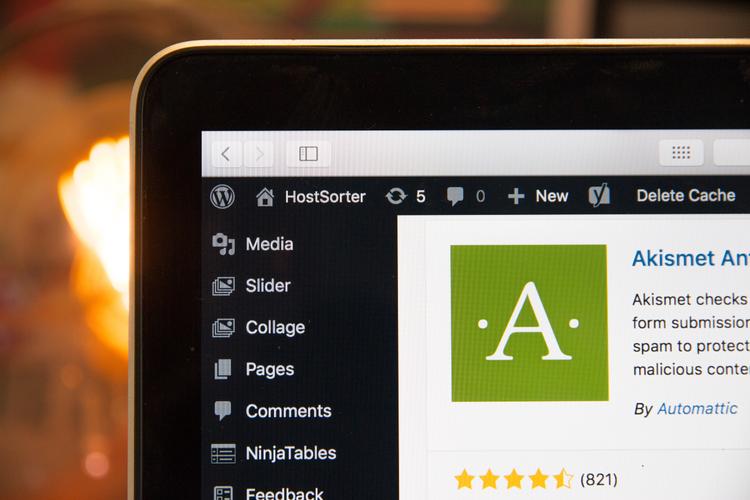
Comparing Content Management and Publishing Platforms: WordPress vs. Contentful vs. Ghost vs. Medium
In this blog post, we'll conduct a comprehensive comparison of four key platforms: WordPress, Contentful, Ghost, and Medium.
Introduction
The digital landscape offers a plethora of content management and publishing platforms, each tailored to different needs and preferences. In this blog post, we'll conduct a comprehensive comparison of four key platforms: WordPress, Contentful, Ghost, and Medium. By exploring the detailed features, benefits, and drawbacks of each platform in relation to the others, you'll gain a deep understanding of which one best suits your content creation and publishing goals.
WordPress vs. Contentful vs. Ghost vs. Medium: A Comprehensive Comparison
WordPress
WordPress stands as a powerhouse content management system (CMS) that has powered millions of websites for years. It offers a user-friendly interface, a vast library of themes, and an extensive ecosystem of plugins.
Advantages of WordPress
Versatility: WordPress is incredibly versatile, making it suitable for a wide range of websites, from personal blogs and e-commerce stores to corporate websites and news portals.
Plugins and Themes: Its rich repository of plugins and themes allows users to customize their websites extensively, adding functionality and visual appeal.
SEO-Friendly: WordPress's SEO plugins and built-in features make it highly conducive to search engine optimization efforts.
Community Support: A large and active community of users and developers contributes to ongoing improvements, bug fixes, and feature enhancements.
Drawbacks of WordPress
Learning Curve: Its extensive features can create a learning curve for beginners, particularly those new to website development.
Maintenance: Regular updates and security measures are essential to ensure the site remains secure and optimized.
Performance: Overly complex or heavily customized websites might experience performance issues if not optimized properly.
Contentful
Contentful takes a unique approach as a headless content management system, emphasizing content distribution through APIs. Its primary focus is on flexibility and seamless integration.
Advantages of Contentful
Headless Approach: Contentful's decoupled architecture excels in content distribution, allowing content to be seamlessly delivered across various platforms.
Developer-Friendly: With an API-first design, Contentful is developer-friendly, offering the ability to integrate with a wide array of technologies.
Content Modeling: Custom content structures can be designed to suit specific content creation needs, enabling tailored experiences.
Drawbacks of Contentful
Learning Curve: The intricacies of its setup and configuration can pose challenges for non-technical users or those unfamiliar with APIs.
Limited Themes: Unlike traditional CMSs, Contentful lacks pre-designed themes, requiring custom design and development.
Ghost
Ghost is an open-source CMS designed with bloggers and writers in mind, placing a strong emphasis on simplicity and streamlined content creation.
Advantages of Ghost
Writing Experience: Ghost offers a distraction-free writing experience, allowing writers to focus solely on content creation without unnecessary clutter.
Themes and Customisation: While focused on simplicity, Ghost still provides customization options for themes, enabling a unique visual identity.
Drawbacks of Ghost
Limited Features: Compared to comprehensive CMSs, Ghost has fewer built-in features, making it more suitable for bloggers than complex websites.
Learning Curve: Users accustomed to traditional CMSs might require time to adapt to Ghost's user interface and approach.
Medium
Medium serves as a popular platform specifically tailored for writers, enabling them to publish articles and connect with readers within a dedicated community.
Advantages of Medium
Accessibility: Medium is extremely user-friendly, making it easy for writers to focus solely on creating content without the need for technical knowledge.
Built-in Audience: Leveraging its existing user base, Medium enhances content visibility and the potential for engagement.
Drawbacks of Medium
Limited Branding: Medium's standardized templates limit customization options, hindering the establishment of a unique brand identity.
Limited Monetization: While Medium offers monetization options, they might not be as versatile as those available on self-hosted platforms.
Conclusion
Selecting the right content management or publishing platform necessitates a thorough understanding of your specific needs and goals. WordPress offers versatility and a robust ecosystem, while Contentful prioritizes content distribution. Ghost focuses on delivering a streamlined writing experience, and Medium connects writers with an existing audience. By evaluating the detailed features, benefits, and trade-offs of each platform in comparison to the others, you can make an informed decision that aligns seamlessly with your content creation and publishing aspirations.